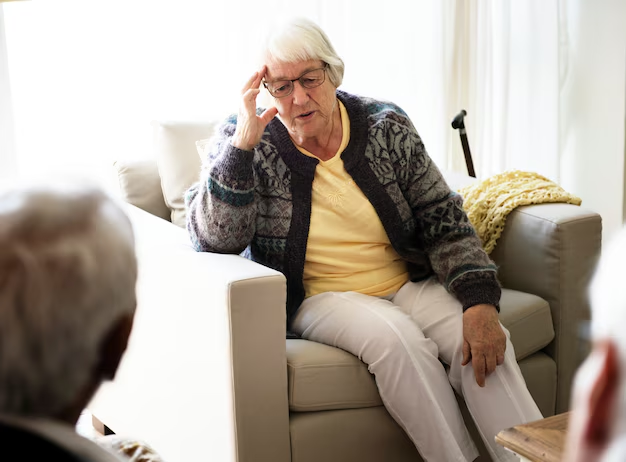Can Concussions Lead to Parkinson's? Here's Everything You Need to Know.
Concussions are often seen as temporary setbacks, something to recover from and move past. However, ever-increasing research into the impact of concussions raises questions about their long-term effects. One area of growing concern is whether concussion—often characterized as a "mild" traumatic brain injury (TBI)—can contribute to or cause neurodegenerative diseases like Parkinson's. While the link between the two isn't direct nor fully understood, a deeper dive into the evidence provides illuminating insights.
What is a Concussion?
Understanding the Basics
A concussion is a type of traumatic brain injury caused by a bump, blow, or jolt to the head or body, leading to an impairment of brain function. While not usually life-threatening, concussions can cause a range of symptoms including headaches, dizziness, confusion, and fatigue. Some individuals may also experience changes in mood or personality.
Symptoms and Immediate Effects
- Physical: Headache, nausea, balance issues
- Cognitive: Confusion, memory problems
- Emotional: Mood swings, irritability
Recovery and Treatment
Recovery methods emphasize rest and gradual return to daily activities, but recovery time can vary significantly among individuals based on the severity of the concussion and personal factors.
Parkinson's Disease: An Overview
What is Parkinson’s?
Parkinson’s disease is a progressive neurologic disorder affecting movement. Its symptoms typically start gently and increase over time. Common signs include tremors, stiffness, and difficulty with balance and coordination. As the disease progresses, non-motor symptoms such as depression, sleep issues, and cognitive impairment may arise.
Common Symptoms
- Motor Symptoms: Tremors, bradykinesia
- Non-Motor Symptoms: Sleep disturbances, depression
Existing Risk Factors
Genetics and environmental factors play significant roles in developing Parkinson’s. Having a family history of the disease or prolonged exposure to certain toxins can increase risk.
Exploring the Connection Between Concussions and Parkinson's
Current Research
Research into the link between concussions and Parkinson’s is still in its infancy. However, some studies indicate a correlation between traumatic brain injuries and an increased risk for Parkinson’s. It’s suggested that head injuries might accelerate brain aging or exacerbate underlying susceptibilities.
- Key Hypotheses:
- TBIs might trigger a pathological cascade leading to neurodegeneration.
- Concussions could potentially speed up the progression of existing Parkinson’s risk factors.
Statistical Findings
- Some epidemiological studies have suggested that individuals who have had a concussion or several TBIs have a slightly higher likelihood of developing Parkinson’s.
- The exact increase in risk differs among studies, indicating that more research is necessary to establish a conclusive relationship.
Mechanisms at Play
While not entirely understood, there are several theories about how TBIs could contribute to neurodegeneration:
- Chronic Neuroinflammation: TBIs may lead to chronic inflammation, a possible precursor to various neurological disorders.
- Tau Protein Accumulation: An overproduction or misfolding of Tau proteins due to injury could play a role in brain cell degeneration, similar to Alzheimer’s pathology.
- Disruption of the Blood-Brain Barrier: In some cases, TBIs might impair the protective barriers of the brain, making it more vulnerable to neurotoxic substances.
Protective Measures and Future Directions
Preventive Strategies for Concussions
Protecting oneself from concussions is crucial, especially for those at increased risk due to lifestyle, occupation, or recreational activities.
- Wear Protective Gear: Helmets during sports or hazardous activities.
- Promote Safe Practices: Adherence to safety guidelines in sports or the workplace.
- Education and Awareness: Understanding the signs of concussion and promoting timely intervention.
Research Advances
Scientists are actively exploring potential therapies and interventions to mitigate the effects of TBIs, and how these technologies might impede or slow the development of neurodegenerative processes like those seen in Parkinson’s.
Consideration in Lifestyle Choices
For those concerned about the risk of Parkinson’s post-concussion, certain lifestyle modifications may provide some benefit:
- Physical Activity: Regular exercise can enhance brain health.
- Dietary Choices: Nutrient-rich diets, with a focus on fruits and vegetables, might support neurological functions.
- Mental Engagement: Activities that challenge the brain, such as puzzles or learning new skills, can provide cognitive benefits.
The Broad Implications
While the conversation surrounding concussions and Parkinson’s continues to evolve, it emphasizes the intricate connection between different types of brain injuries and long-term health outcomes. The potential links underline the importance of not just immediate concussion management but also long-term health monitoring and lifestyle considerations.
These insights should empower individuals with the knowledge needed to take proactive steps in fostering brain health—important in both recovery from concussions and in minimizing the risk of Parkinson’s. Awareness, protection, and balanced health habits form a triad that can guard against the potential long-term effects of concussions.
Key Takeaways: 🧠
- Understand and watch for concussion symptoms: Prompt attention and rest can aid in proper recovery.
- Protect your brain: Use helmets and follow safety protocols.
- Stay informed: Keep up with research developments that may impact health strategies and decisions.
- Healthy living: Engage in lifestyle choices that encourage long-term brain health.
- Awareness is key: Recognizing early symptoms of Parkinson’s can support quicker intervention and management.
Remember, knowledge is a powerful tool in managing our health. By understanding the mechanisms and taking proactive steps, we can better navigate the complexities of brain injuries and their possible long-term impacts.

Related Articles
- Are There Environmental Causes Of Parkinsons
- Can Alcohol Cause Parkinson's
- Can Females Get Parkinson Disease
- Can Head Trauma Cause Parkinson's
- Can Parkinson Disease Cause Dizziness
- Can Parkinson's Affect Eyesight
- Can Parkinson's Affect Memory
- Can Parkinson's Affect Speech
- Can Parkinson's Affect Vision
- Can Parkinson's Be Cured
